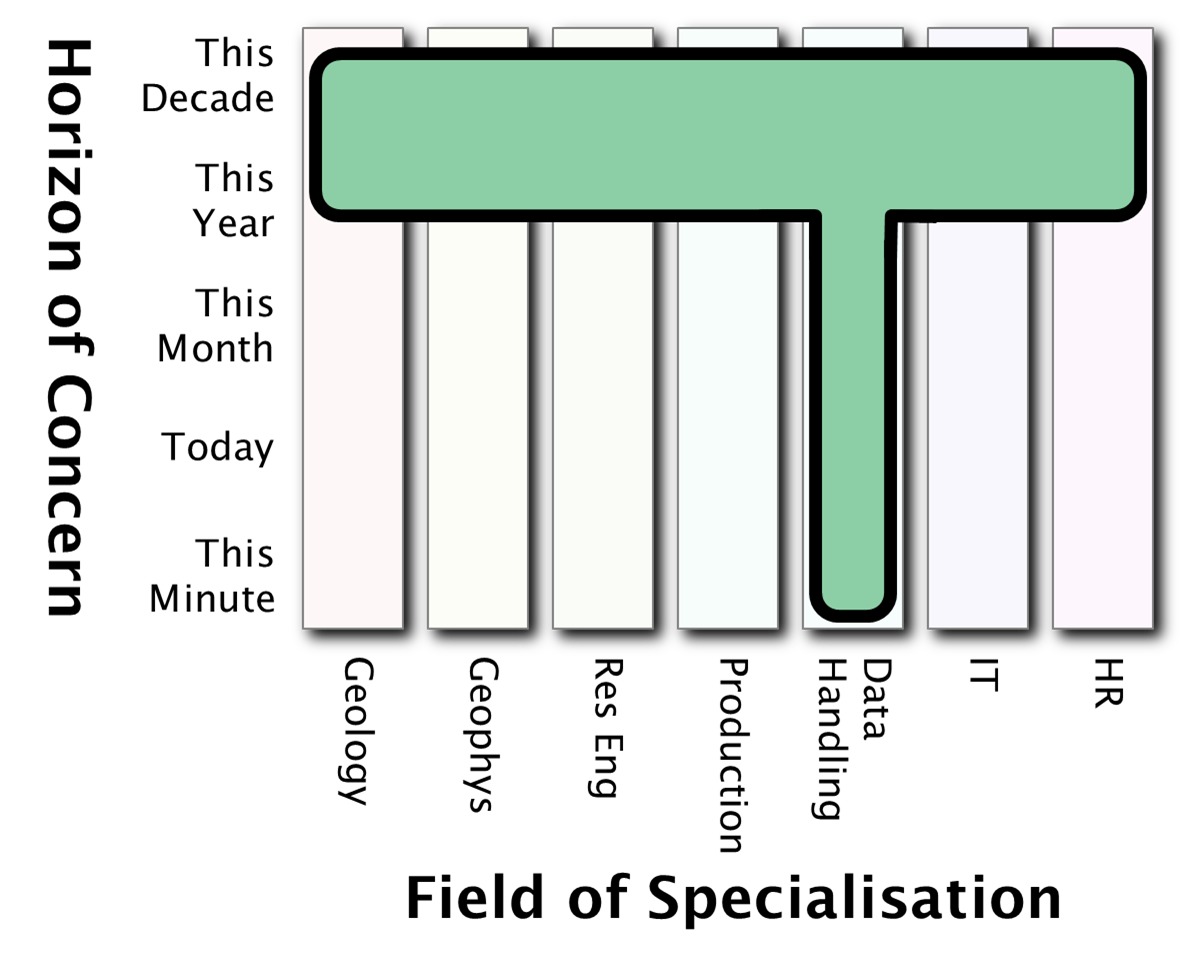
| Home | FAQs | Book Contents | Updates & News | Downloads |
There's a really useful concept called the "horizon of concern", the idea is that the more senior a position within an organisation the longer the time frame that that person should worry about. To take an example, the customer facing staff should focus on the immediate issue at hand, they don't need to be distracted with worrying about whether the organisation's growth can be accommodated within the current facilities, but senior staff should be concerned about such long term things, they should not be fighting today's fires but rather anticipating tomorrow's challenges.
Adam Smith pointed out more than 200 years ago that the key to efficient business is specialisation, and since that time the number of pursuits required to enable modern companies to function has exploded. This is especially true in the exploration and production business, the combination of risky, uncertain projects and high rewards has inevitably led to a diverse workforce each with its own peculiar language, techniques and tools.

No single person can be fully competent in every one of these topics, but I suspect that having a deep appreciation of at least one significant subject is essential in order to grasp the nuances when communicating with true "deep experts". However, anyone who wants to participate in the "strategic discussions" in an oil company must also have at least a high level grasp of all the key vocations involved, enough to ask awkward questions or to bluff their way at parties.
For many years the recruitment business has used the term T-shaped‡ to describe their ideal candidates, that is people who combine a deep knowledge of a significant field with at least an outline awareness across the whole range of an industry's activities. So, once your expertise in data handling is acknowledged by everyone you come into contact with, you still have more work to do. Geoscientists, for example, are often eager to discuss their various disciplines, explaining in quite some detail the intricacies of their work. One benefit of having such encounters is that you will often quickly identify tricks to help simplify their lives, capabilities of the existing systems that they were not aware of.
If we as data managers want to get our big projects approved, our initiatives endorsed and our communications read they must be coached in the language of other specialists. While we all know that failing to secure crucial data will inevitably expose the company to unnecessary risk, others don't necessarily see that, if they did they would probably be data managers too.
‡ Originally described in "The hunt is on for the Renaissance Man of computing" The Independent (London), 17 Sep 1991 by David Guest the term was popularised by an interview with Tim Brown of IDEO in 2011
Article 22 |
Articles |
RSS Feed |
Updates |
Intro |
Book Contents |
All Figures |
Refs |
Downloads |
Links |
Purchase |
Contact Us |
Article 24 |